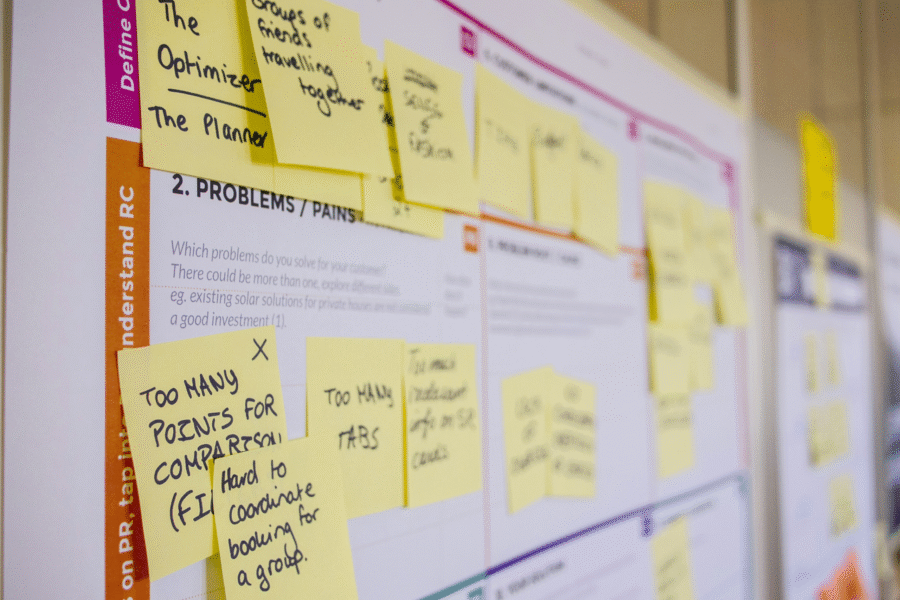From plummeting oil prices and production declines over the course of the pandemic and a complete shift to remote working culture, to a rapid increase in demand, a talent shortage and the growing pressure to reach net-zero targets, the last few years have been an extremely turbulent time for the energy sector. As a result, connected and cost efficient working has never been more important, particularly as PWC predicts that the historically volatile oil and gas sector will only experience further uncertainty in the coming years as pressures for digital transformation grow, regulations on carbon reduction and reporting evolve and as workforce needs change.
Currently, many oil and gas companies are at a crossroads with three options; continue to develop fossil fuel-based resources, diversify through strategic acquisitions, focus on other energy capabilities or commit completely to renewable energy resource development.
There have been encouraging signs of change in the energy sector as companies begin to take accountability for their environmental impact and consolidate their approaches to positively contributing to net-zero targets and the energy transition. For example, there has been a boom in renewable energy projects, particularly offshore wind projects. Furthermore, companies such as Shell and BP are investing in carbon capture and storage technologies to support carbon intensive businesses toward net-zero emissions.
This increased pressure to operate sustainably has been accompanied by growing pressure to embrace digital transformation, particularly as remote and hybrid working culture has remained prevalent post-covid, completely changing the way projects are run. With 37% of project portfolio managers citing digital transformation as the biggest initiative for their business in 2024, organizations are finally realizing the potential of technology to improve their efficiency, agility and give themselves a competitive advantage in an age where maximizing productivity and profits are key to success.
Moreover, 72% of project professionals report that flexible working is having a positive impact on their projects. Consequently, investment into project management software has surged to enhance connected working, utilization and streamline workflows.
Leveraging technology is particularly important with the ongoing talent shortage in the energy sector. The decline began in 2014 with the price of oil going into free-fall with the petroleum industry slashing graduate recruitment, with the number of hires halving in two years. Additionally, there is a large number of workers retiring due to the aging workforce of the energy industry. In the UK alone there is a gap of approximately 200,000 workers, the demand for expertise in the energy sector continues to rapidly increase, yet companies are struggling to hire and retain talent.
There is the hope that solutions such as reskilling and upskilling individuals working in carbon-intensive jobs can fuel the energy transition. For example, a driller is a declining role, but an individual with experience in hydraulics and preventative maintenance has the potential to develop their knowledge and upskill into a renewable energy role such as a wind-turbine technician.
But technology can also play a vital role in filling certain gaps through automation, so that human resources can be used where they are really needed on more complex and meaningful tasks. To revitalize this once-thriving industry, it is essential to harness all wisdom and skills whilst adopting new working methods and using available technology.
Proteus is an end-to-end project management solution accelerating clients’ digital transformation bringing together existing systems in a central hub, delivering substantial efficiency and operational cost savings.
From opportunity capture and proposal writing through to project delivery, Proteus enables project teams to thrive and collaborate with ease on complex projects anywhere. With game-changing features, such as automated reporting, real-time insights, project controls, as well as seamless integration with existing CRM and ERP systems, Proteus supplies teams with control and visibility over their projects.
Simplicity, efficiency, and driving project success are at the core of what we do. Proteus provides stability, consistency and connected working in a continually changing environment. Generating £10.2 million in investment since 2018, we have worked alongside leading companies in the energy sector helping them transition from over-reliance on ineffective spreadsheets and disconnected systems to our simple, user-friendly, centralized software solution.
Our most recent raise in February 2024 amounted to £3.1, enabling us to develop the size of our in-house development team and build our AI capabilities to further optimize clients’, both existing and new, project performance. Learn more about Proteus here.
About Proteus
Proteus developed by a Scottish-based tech company, Xergy Group, is an end-to-end project management solution developed for the energy and engineering consulting industries.
Proteus is industry-proven and enables consultancies to meet project demands across the full lifecycle, from proposal development to project delivery. With robust sales and project delivery modules, Proteus helps its customers win more business, increase efficiencies, manage expenditures, and improve project controls.
Critical workflows, automation, and controls are integrated into Proteus. These include opportunity evaluation, proposal building, resource planning, budget tracking and forecasting, real-time multi-level restricted dashboards, and project performance analytics.
Third-party integrations and customised solutions allow Proteus’ users, which include C-suite, project leads, and engineers, to get the exact software solution needed for their business.
We offer a free onboarding consultation service to ensure your company account is set up to your company’s needs.
How to get Proteus
Proteus operates under a software-as-a-service (SaaS) model. We offer Enterprise packages and flexible pricing solutions: contact our team to learn more.
We designed Proteus to be simple, and that means you can get up and running on Proteus without an IT team or support from a programmer. You will want to spend a bit of time configuring the admin console so that you have everything set up to suit your company structure, but it’s very intuitive and you don’t need a PhD in IT.
However, we want you to get the best out of what is a brilliantly powerful tool, so don’t hesitate to ask for our support. We have a team of product experts who are ready to help you with the configuration process, so get in touch today by filling out the form below:



